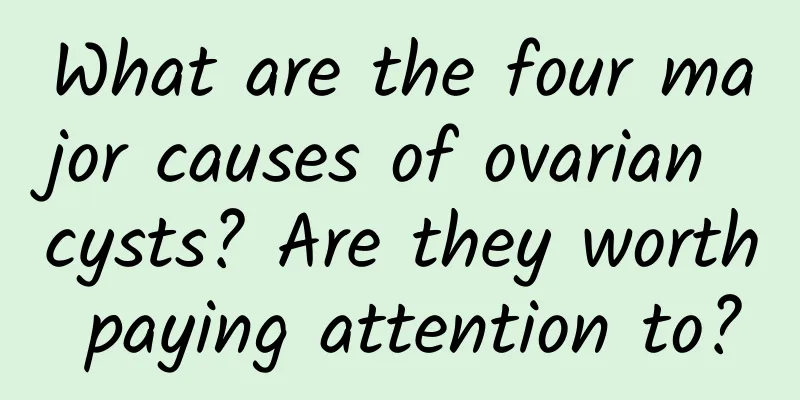Causes and consequences of uterine cysts

|
The main causes of uterine cysts include genetic factors, abnormal hormone levels, chronic inflammation, and living environment. The consequences may lead to menstrual abnormalities, infertility, and even malignant changes. It is particularly important to identify the causes early and take targeted treatment measures. 1. Influence of genetic factors: The formation of uterine cysts may be related to genetics. If there are patients with similar gynecological diseases in the family, the risk of the disease may increase. Genetic genes may affect hormone regulation, cell division and other processes, leading to the formation of cysts. For women with a family history of the disease, regular check-ups and attention to physical changes should be paid to timely detection. 2. Influence of environment and living habits: External environmental pollution, excessive stress, unhealthy diet and other factors may cause uterine cysts. Long-term intake of foods containing hormones or exposure to chemical pollutants may affect the hormone balance in the body. Irregular work and rest, long periods of sitting, lack of exercise and other living habits can also reduce the body's immunity and increase the chance of cysts. It is recommended to adjust your lifestyle, maintain a healthy diet, reduce the intake of foods high in hormones, increase exercise, and improve your body's immunity. 3. Abnormal hormone levels and personal factors: Long-term high estrogen levels in the body are one of the important causes of uterine cysts, which may be related to diseases such as polycystic ovary syndrome and endocrine disorders. Endometriosis or degenerative lesions may also contribute to the formation of cysts. Abnormal hormone levels are often accompanied by symptoms such as abnormal menstruation and abdominal pain. If similar problems are found, you should see a doctor as soon as possible and confirm the diagnosis through hormone tests and imaging methods. 4. The role of chronic inflammation: Chronic inflammation, such as pelvic inflammatory disease and endometritis, can easily cause local tissue necrosis or fluid accumulation, forming cysts. Long-term untreated inflammation may damage uterine tissue and promote the further development of cysts. Eliminating the interference of chronic inflammation can be done through antibiotic treatment, traditional Chinese medicine conditioning, etc., which must be completed under the guidance of a specialist. 5. Possible consequences of uterine cysts: If the cyst is small and asymptomatic, most of them do not require special treatment but need regular observation; larger cysts may compress surrounding organs, causing symptoms such as frequent urination, constipation, lower abdominal pain, and even infertility; if the cyst is accompanied by infection or malignant transformation, emergency treatment or surgical removal is required. Common treatments include drugs to regulate hormone levels such as Diane-35, local injection ablation therapy, or laparoscopic surgery. In more serious cases, hysterectomy may be required. Uterine cysts require appropriate intervention measures based on individual causes and specific symptoms. Women are also required to maintain a healthy lifestyle, undergo regular gynecological examinations, and improve their long-term health. If you suspect you have a uterine cyst or find related symptoms, please go to the hospital in time to avoid missing the best time for treatment. |
<<: Is uterine cyst serious? What are the dangers?
>>: What can't you eat if you have adenomyosis?
Recommend
Don't go too far! 7 healthy foods that make you fat if you lose control
People who are trying to lose weight will refuse ...
Some precautions for the use of medications for vaginitis
Many female friends rarely go to the hospital for...
What is the cause of vulvar leukoplakia?
What are the causes of vulvar leukoplakia? Vulvar...
How long does it take to get pregnant after vaginitis is cured?
How long after vaginitis is cured can I get pregn...
What are the symptoms of irregular menstruation?
Irregular menstruation refers to abnormalities in...
7 Steps to Recognize and Get Rid of Bloating! Nutritionist reveals: Eat less of these 4 gas-producing foods
Stomach bloating is a common discomfort for many ...
What are the dangers of appendix orchitis? Symptoms of appendix orchitis
Acute bacterial orchitis develops suddenly, often...
High blood pressure causes dizziness and dry eyes… 3 medicinal teas to treat dizziness
Patients with hypertension are prone to symptoms ...
Banana-shaped body lacks femininity. One-day menu to regain curves
We are all girls, but we are less feminine than o...
How to check which bacteria causes chronic cervicitis
The specific pathogens of chronic cervicitis need...
What are the typical symptoms of irregular menstruation?
What are the typical symptoms of irregular menstr...
Is ovarian cyst a serious disease?
Ovarian cysts are a common gynecological disease ...
What if my first menstrual period is long after uterine fibroid surgery?
What if my first menstrual period is long after u...
Standards for testing for threatened abortion
We are all familiar with threatened abortion. Man...
The first day of menstruation is so light that it seems like it has not come.
The scanty menstruation on the first day may be a...









